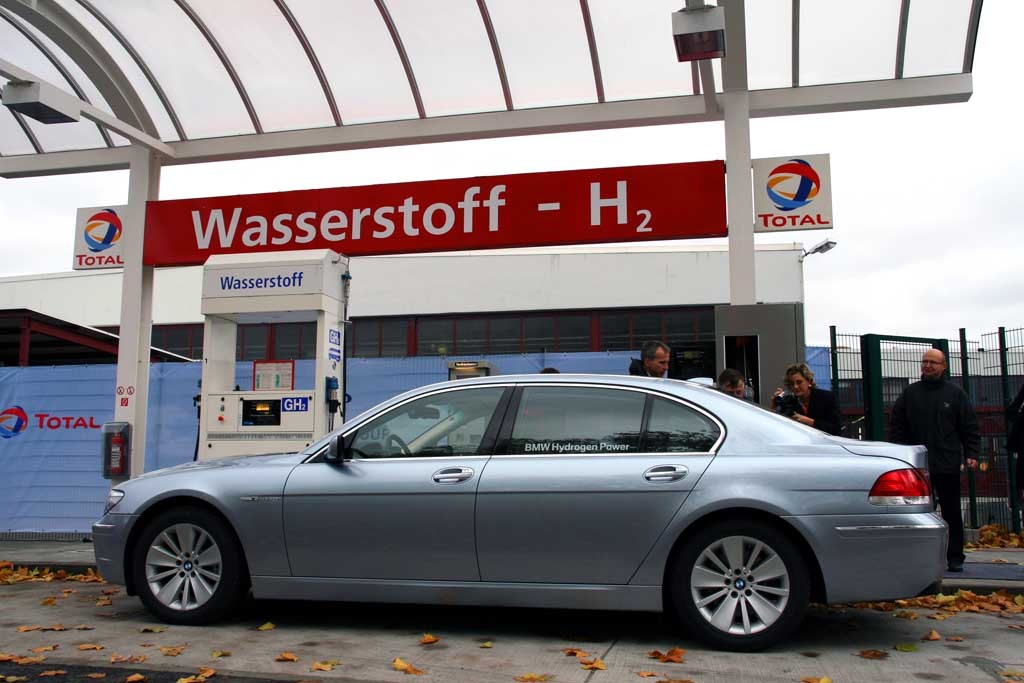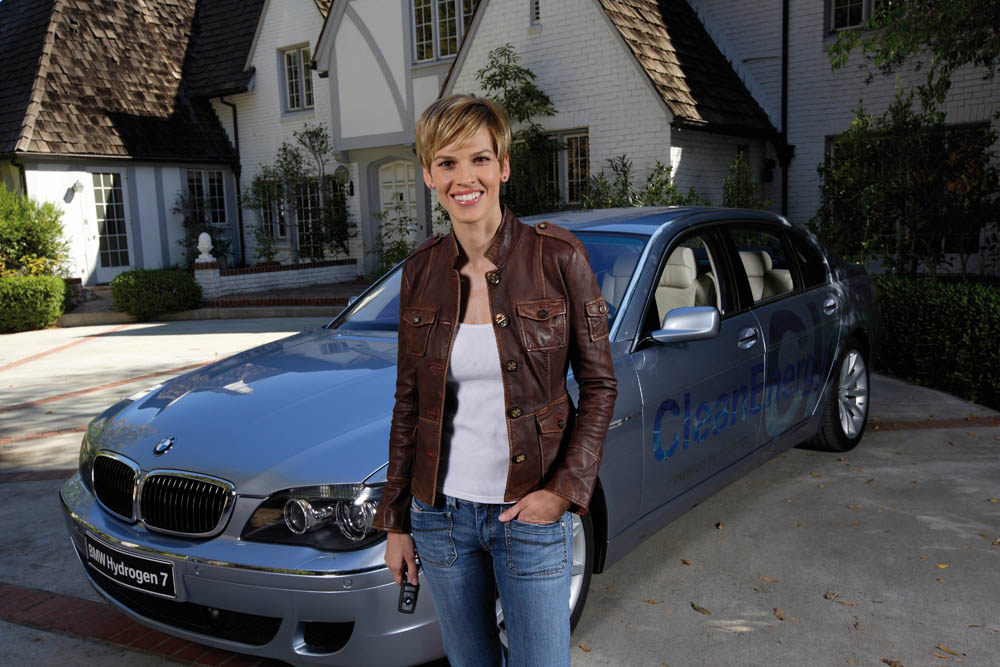Perhaps we're a little cranky this morning, still being on Greenwich Mean Time while the clock says Eastern Daylight. Or maybe we're just cynical.
But could everyone please take a deep breath and consider reality before getting all hot and bothered over news that BMW seems to be working on a hydrogen hybrid powertrain for a future Mini Cooper?

2007 BMW Hydrogen 7

2006 BMW Hydrogen 7

2006 BMW Hydrogen 7

2006 BMW Hydrogen 7

2006 BMW Hydrogen 7

BMW Hydrogen 7 Hilary Swank
[gasp] "Radical" new system !!!
In brief, the British magazine Autocar reports--rather breathlessly--that BMW is developing a "radical" new hybrid system that uses a standard Mini front-wheel-drive powertrain up front, plus a hydrogen-based system on the rear axle.
That system would use a small (5-kilowatt) hydrogen fuel cell, supplied by a tank of compressed hydrogen, to power an 82-kilowatt electric motor driving the rear wheels.
... and supercapacitors too!
Supercapacitors, which can quickly store and release power at very high voltages, would be used to buffer the fuel cell against the highest loads. The fuel cell and engine might work together under high load as well, though how that provides zero emissions is unclear.
Spy shots appear to show a BMW 1-Series hatchback serving as a test mule, apparently converted to front-wheel-drive with the hydrogen system at the rear. In the shots, a cryogenic tank is seemingly fueling the car through a port over the right rear wheel.
BMW had a handful of BMW Hydrogen 7 sedans in testing for years, using hydrogen as fuel for a standard internal combustion engine. They've been parceled out to celebrities in Southern California like Hilary Swank, among other test drivers.
Emissions-free city cores
The goal is to let vehicles enter and travel through European city centers in emissions-free mode. In the coming decade, many cities are expected to adopt emissions-free zones--or tax emitting cars heavily--in the densest urban cores.
Carmakers obviously don't want their products banned altogether from such cores, so they're experimenting with many different ways to meet this need--among them, for instance, the Jaguar-Lotus LimoGreen serial hybrid program.
But, c'mon, guys, hydrogen? [sigh] We've been down this road already, haven't we?
A few little problems
We don't think hydrogen will be the "fuel of the future," or perhaps even one of them, for two reasons.
First, its "wells-to-wheels" carbon balance is highly suspect, because it takes an enormous amount of energy input to produce pure hydrogen from more complex molecules.
And second, there's that little matter of the missing distribution infrastructure for a brand-new and, let's face it, combustible fuel stored at high pressures. We're talking hundreds of billions of dollars there, kids.
Late to the game with hybrids
After a late start, BMW has recently launched two hybrids--the 2010 BMW ActiveHybrid X6 "sports activity coupe" and the 2010 BMW ActiveHybrid 7 full-size sedan--with more on the way.
They're also testing a fleet of all-electric Mini E conversions, with their next EV being the ActiveE BMW 1-Series conversion.
No green light
At the end of the article on the new hydrogen hybrid concept, Autocar notes discreetly:
The fuel-cell hybrid has not yet been given the green light by BMW bosses...the firm has to be certain that sufficient sales would be generated to ensure financial viability. It also needs to decide whether hydrogen fuel pumps will become available in most large cities.
Indeed.
(Oh, and don't tell BMW Mazda has been working on hydrogen hybrids for years, OK?)
[Autocar]












